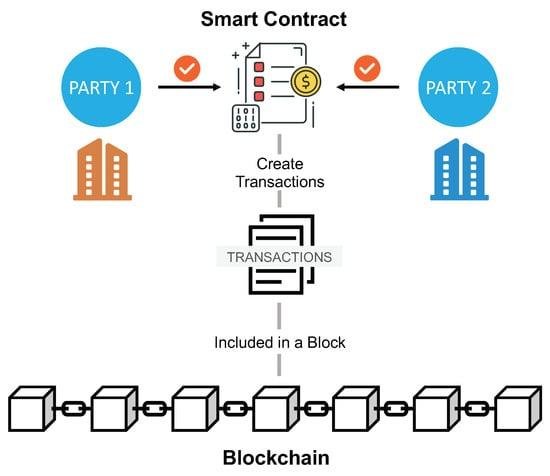Blockchain and Smart Contracts: Transforming Corporate Law

Introduction
In today’s fast-changing world of technology, few innovations have captured as much attention as blockchain and smart contracts. Originally linked to cryptocurrency, these digital tools are now making waves in corporate law, promising to change how businesses operate, interact, and follow regulations. With many industries facing challenges around transparency, efficiency, and security, blockchain offers a potential solution by streamlining operations and building trust. This article explores how blockchain and smart contracts are transforming corporate law, reshaping business agreements, and making access to justice more inclusive in a complex corporate world. Let’s dive into how technology and law are coming together to create new possibilities.
The Rise of Blockchain: Revolutionizing Legal Transactions
Blockchain technology is shifting how legal transactions are done in corporate law. By using the transparency and security of blockchain, businesses can simplify many processes, reducing the complexities that often slow down legal transactions. Smart contracts, which are self-executing agreements with terms written in code, are at the forefront of this change. These contracts automatically enforce terms and reduce the need for intermediaries, cutting down costs and potential legal disputes. As a result, businesses can enjoy benefits such as:
- Increased Transparency: Every transaction is recorded on a secure, public ledger that everyone involved can access.
- Improved Efficiency: Automated processes reduce time spent on executing contracts and resolving disputes.
- Enhanced Security: Blockchain’s encryption makes it difficult to alter or tamper with transactions.
This shift not only helps businesses but also allows legal professionals to focus on more strategic tasks instead of routine paperwork. As more companies adopt this technology, the role of lawyers will evolve, becoming more focused on advising clients on how to navigate smart contracts. The future of corporate law will involve embracing this digital transformation, which can speed up processes and lower costs:
| Aspect | Traditional Method | Blockchain Approach |
|---|---|---|
| Contract Execution Time | Days to Weeks | Minutes to Hours |
| Dispute Resolution | Legal Proceedings | Automated Resolution |
| Cost of Transactions | High Legal Fees | Lower Operational Costs |
You May Also Like: The Role of Blockchain in Verifying E-Discovery Data

Understanding Smart Contracts: A New Era in Contract Law
Smart contracts are changing the way legal agreements are made by using the transparent and unchangeable nature of blockchain. Unlike traditional contracts, which require intermediaries for enforcement, smart contracts work on decentralized networks and operate automatically. This means that parties can set specific conditions directly in code, ensuring that the terms are carried out when predefined conditions are met. Key features of smart contracts include:
- Automation: Reduces the need for manual oversight and minimizes errors.
- Immutability: Once deployed, the contract code cannot be changed, ensuring trustworthiness.
- Trustless Environment: Parties don’t have to trust each other; they trust the code.
- Cost Efficiency: Lowers costs by eliminating intermediaries.
Smart contracts make processes more efficient and transparent, leaving a clear record of all transactions. For businesses, this can change the way they handle various functions, such as supply chain management or customer agreements. Here’s how smart contracts can be applied:
| Application | Description |
|---|---|
| Supply Chain Management | Automates tracking and payments as goods move through the supply chain. |
| Real Estate Transactions | Facilitates secure and quick property transfers without the need for a broker. |
| Insurance Claims | Streamlines claims processing by automating payment upon meeting conditions. |

Implementation Strategies: Integrating Blockchain into Corporate Governance
To successfully integrate blockchain into corporate governance, businesses need to take a strategic approach, considering both technology and human factors. Some key strategies include:
- Educating Stakeholders: Provide training for all members of the organization on how blockchain can benefit governance.
- Pilot Programs: Start with small-scale blockchain projects to test effectiveness before going big.
- Collaboration: Partner with tech startups and blockchain experts to navigate the complexities of implementation.
A successful integration also requires clear frameworks for governance and compliance. Companies should focus on:
- Regulatory Compliance: Stay up to date on blockchain regulations and ensure all implementations follow local and international laws.
- Smart Contract Development: Build smart contracts that outline governance rules and ensure compliance, reducing ambiguity.
- Auditing and Transparency: Conduct regular audits of blockchain transactions to ensure accountability and foster trust.

Navigating Challenges: Legal Compliance and Future Considerations
As more companies adopt blockchain and smart contracts, they must deal with the evolving legal landscape. Questions about how these technologies comply with existing laws and regulations are common. Businesses must ensure that their smart contracts are enforceable and meet regional legal standards. Here are some of the key legal considerations:
- Data Privacy Laws: Smart contracts must comply with laws like GDPR (General Data Protection Regulation) or CCPA (California Consumer Privacy Act) regarding how they handle user data.
- Jurisdictional Issues: Companies operating across borders need to understand how laws apply in different regions.
- Consumer Protection: Smart contracts must have safeguards to protect consumers and ensure fairness.
In the future, businesses must also prepare for ongoing changes in regulations. To stay ahead, companies need to be adaptable and keep learning about new laws and technological developments. Some future considerations include:
| Aspect | Consideration |
|---|---|
| Regulatory Changes | Anticipate and prepare for new laws affecting blockchain technology. |
| Technological Advances | Stay informed about evolving blockchain platforms and their implications for legal frameworks. |
| Industry Standards | Engage in dialogue to shape best practices for smart contract implementations. |
In Retrospect
As we look at the intersection of technology and law, blockchain and smart contracts present exciting opportunities for businesses and legal systems alike. While there are still challenges, such as regulatory complexity and the need for broader adoption, the benefits of greater efficiency, transparency, and security are clear.
The integration of blockchain and smart contracts is not just a trend—it’s a major shift that is reshaping the corporate world. Legal professionals and businesses must stay informed and adapt to this digital transformation. By doing so, they can help create a more secure, transparent, and fair corporate environment. The journey has just begun, and the role of lawyers will be crucial in guiding this transformation toward a more innovative and just future. Let’s navigate this change together.

















































































































































































































































































































































































































































































































































